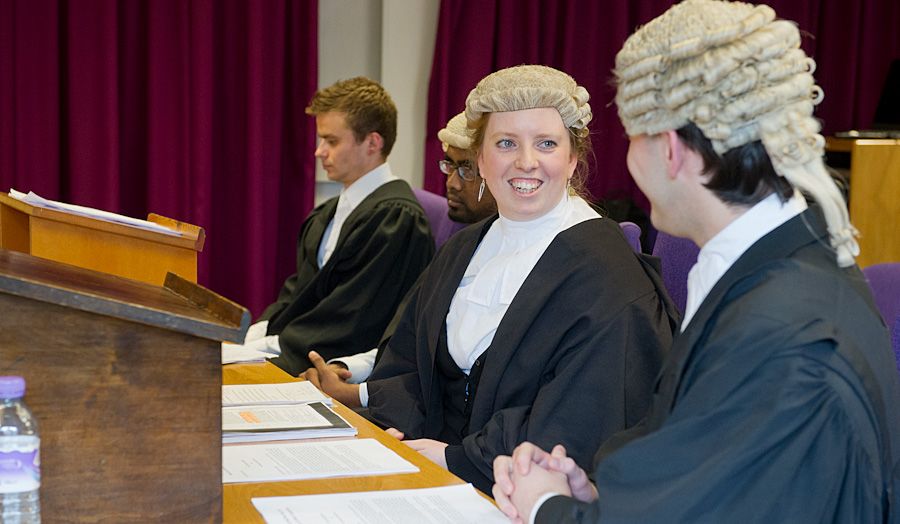Apply for this course
Please select when you would like to start:
Use the apply button to begin your application for the Media Law LLM. Please note, the following PG Cert and PG Dip options are also available:
Apply for the PG Cert
Apply for the PG Dip
If you require a Student visa and wish to study on a part-time basis, please read our how to apply information for international students.
Why study this course?
This course has been designed to address the growing demand for practitioners in the media sector who want to understand legal issues surrounding the industry such as copyright law, advertising law, media ethics, privacy and data protection.
You’ll learn remotely, giving you the freedom to study from wherever you are in the world. You can choose to study this subject as a LLM (Master of Laws), postgraduate diploma or postgraduate certificate.
Study in a way that suits you
You’ll learn remotely, giving you the freedom to study from wherever you are in the world
Take your career prospects to the next level
This course is suitable if you have either a legal background, or if you have a media background and want to learn about the legal issues affecting the industry
Learn from industry professionals
We ensure that your tutors and lecturers have strong relevant backgrounds in both the academic world and in legal practice with experience as barristers or solicitors
Course Modules
The modules listed below are for the academic year 2021/22 and represent the course modules at this time. Modules and module details (including, but not limited to, location and time) are subject to change over time.
- Dissertation (core, 60 credits)
- Research Methods for Lawyers (option, 20 credits)
- The English Legal Systems and Commercial Law (option, 20 credits)
- Intellectual Property Rights (option, 20 credits)
- IT, Social Media and the Law (option, 20 credits)
- Advertising Law (option, 20 credits)
- Ethics, Values and the Media (option, 20 credits)
- Data Protection, Defamation and Privacy (option, 20 credits)
Course details
You'll be required to have:
- a minimum of a lower second-class (2.2) honours degree in a relevant subject such as law, commercial law or a media-based degree (or equivalent international qualification)
- an IELTs score of 6.5 as a standard entry requirement for law courses
If you have a degree outside of the subject areas listed above, you may still be considered. You will need to speak to a course leader, please contact courseenquiries@londonmet.ac.uk for contact details.
For mature applicants without a degree you may be considered on merit of 2+ years appropriate work experience and other professional development or professional qualifications.
English language requirements
To study a degree at London Met, you must be able to demonstrate proficiency in the English language. If you require a Student visa you may need to provide the results of a Secure English Language Test (SELT) such as Academic IELTS. This course requires you to meet our higher requirements.
If you need (or wish) to improve your English before starting your degree, the University offers a Pre-sessional Academic English course to help you build your confidence and reach the level of English you require.
If you choose to study the LLM, you’ll be assessed through a combination of coursework essays, experiential projects and portfolio work, followed by a research dissertation or experiential work-based learning project.
If you choose to study the PG Dip or PG Cert, you’ll be assessed through a combination of coursework essays, experiential projects and portfolio work.
On successful completion of this course, you will have broadened your knowledge of media law. Whether you are already a media legal professional looking to move up the career ladder or a junior wanting to explore work in the wider legal profession, you’ll have an advantage over your colleagues in the media industry where legal skills are becoming more and more vital.
If you complete the LLM qualification, you’ll have a Master of Laws degree. The PG Dip and PG Cert are also postgraduate qualifications that will give you an insight into media law and can help you progress in this field professionally.
In addition to the Master of Laws (LLM) version of this course, you can also choose to study this topic as one of the below qualifications. Please note, these courses are shorter and do not hold as much academic weighting as a full LLM degree, but they are good for building on your existing knowledge.
Postgraduate certificate
You can study this course as a PG Cert, which is 60 credits out of the full 180 credits for the master’s degree.
As part of the PG Cert, you will need to choose/take three of the optional modules from the master’s degree.
The costs for the PG Cert qualification are:
Home FT: £4,500 per year
Overseas FT: £4,500 per year
Home PT: £2,250 per year
Overseas PT: £2,250 per year
If studied full-time, this course takes one year and if studied part-time, this course can take two to three years.
Postgraduate diploma
It’s also possible to study this course as a PG Dip, which is 120 credits out of the full 180 credits for the master’s degree.
You’ll need to choose/take six of the optional modules from the master’s degree.
The costs for the PG Dip qualification are:
Home FT: £9,000 per year
Overseas FT: £9,000 per year
Home PT: £4,500 per year
Overseas PT: £4,500 per year
If studied full-time, this course takes one year and if studied part-time, this course can take two to three years.
Please note, in addition to the tuition fee there may be additional costs for things like equipment, materials, printing, textbooks, trips or professional body fees. Additionally, there may be other activities that are not formally part of your course and not required to complete your course, but which you may find helpful (for example, optional field trips). The costs of these are additional to your tuition fee and the fees set out above and will be notified when the activity is being arranged.
How to apply
Use the apply button to begin your application for the Media Law LLM. Please note, the following PG Cert and PG Dip options are also available:
Apply for the PG Cert
Apply for the PG Dip
If you require a Student visa and wish to study on a part-time basis, please read our how to apply information for international students.
When to apply
We advise applying as early as possible as applications will only be considered if there are places available on the course.
To find out when teaching for this degree will begin, as well as welcome week and any induction activities, view our academic term dates.

















